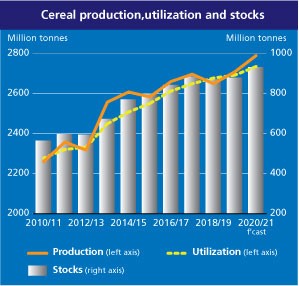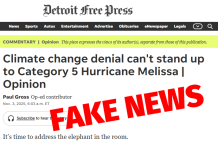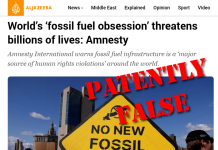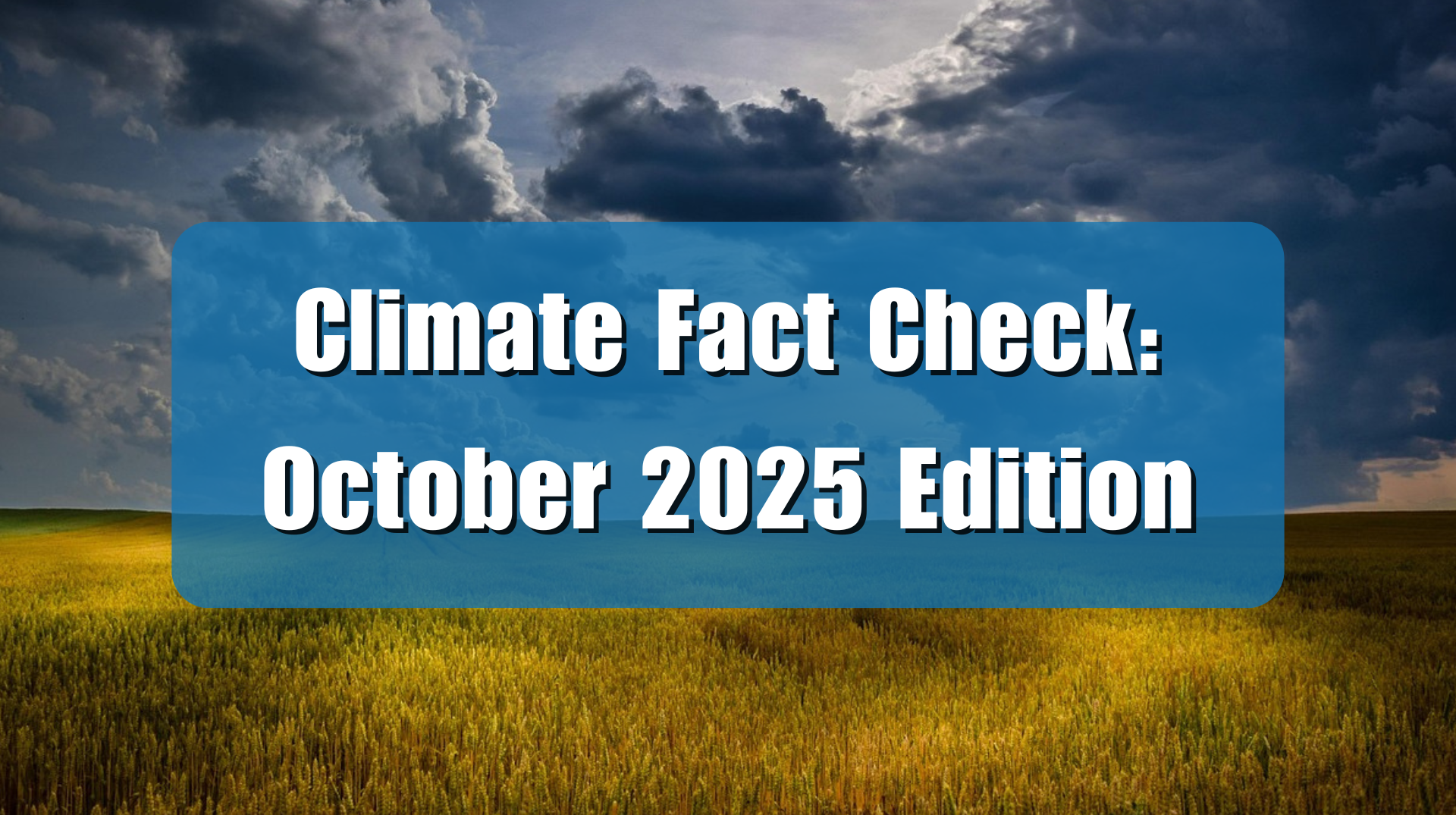The Massachusetts Institute of Technology published an article this morning falsely claiming climate change causes crop failure, hunger, and poverty. The article, titled “$25 million gift launches ambitious new effort tackling poverty and climate change,” asserted an avalanche of fake climate claims to justify a huge donation to MIT. Well, at least MIT demonstrated which side of the climate debate benefits from the vast majority of climate activist money.
Among MIT’s false assertions is that climate change is causing or will cause food shortages and an increase in hunger and malnutrition.
“As vast as its effects may be, climate change also presents a diverse set of problems to tackle. Among other things, climate change, as well as fossil-fuel pollution, is expected to reduce crop yields, raise food prices, and generate more malnutrition …,” writes Peter Dizikes, the author of the article.
The facts say just the opposite, and MIT should know that.
As my colleague James Taylor, president of The Heartland Institute, recently noted in a Climate Realism article, the United Nations Food and Agriculture Organization (FAO) keeps meticulous records of each country’s agricultural production, as well as global agricultural production. FAO reports global cereal production (the vitally important corn, wheat, and rice crops) set an all-time record in 2019. Moreover, FAO expects 2020 crop production to surpass the 2019 record.

New records in 2019 and 2020 are not surprising considering new crop yield records are set virtually every year during this period of modest warming.
Indeed, the carbon dioxide humans have added to the atmosphere has enriched plant growth, contributing to record crop yields. Warmer temperatures and longer growing seasons have also aided crop production. The benefits have brought about the largest decline in hunger, malnutrition, and starvation in human history.
The Nongovernmental International Panel on Climate Change (NIPCC) meticulously researched and published Climate Change Reconsidered II: Biological Impacts and its follow-up document, Climate Change Reconsidered II: Fossil Fuels. These two NIPCC publications show the use of fossil fuels has dramatically reduced poverty and hunger throughout the world. As NIPCC reports, despite the addition of 3.2 billion people to the planet since 1968, poverty and hunger have fallen at a faster rate than at any time in human history.
Forty-four percent of the world’s population lived in extreme poverty in 1981. Since then, the share of people living in extreme poverty fell below 10 percent in 2015. And although more than 700 million people worldwide still suffer from persistent hunger, according to the United Nations, the number of hungry people has declined by two billion since 1990. Additionally, research shows there is now 17 percent more food available per person than there was 30 years ago—all occurring during this period of consistent and modest global warming.
Food abundance increased even as the amount of land devoted to agriculture declined over the same period. Forests and pastures have reclaimed former farm fields, benefiting wildlife and the environment. This has happened due to two primary factors: (1) the widespread use of modern technologies related to agriculture, many of which depend on fossil fuels, and (2) increased carbon-dioxide levels in the atmosphere.
The May 2018 report by The Heartland Institute, “The Social Benefits of Fossil Fuels,” documents many of these benefits. According to the report, “the increase in atmospheric [carbon dioxide] concentration … caused by the historical burning of fossil fuels has likely increased agricultural production per unit [of] land area by 70 percent for C3 cereals [which include rice, wheat, oats, cotton, and evergreen trees], 28 percent for C4 cereals [which include sorghum, maize, and various grasses], 33 percent for fruits and melons, 62 percent for legumes, 67 percent for root and tuber crops, and 51 percent for vegetables.”
The MIT researchers were either ignorant of the agricultural benefits of atmospheric carbon dioxide or simply sold out to score a nice $25 million donation – on top of their many other climate alarmism donations. Either way, the beneficial impact of carbon dioxide and global warming on crop production and declining human hunger is one of the most important global developments in recent decades.























